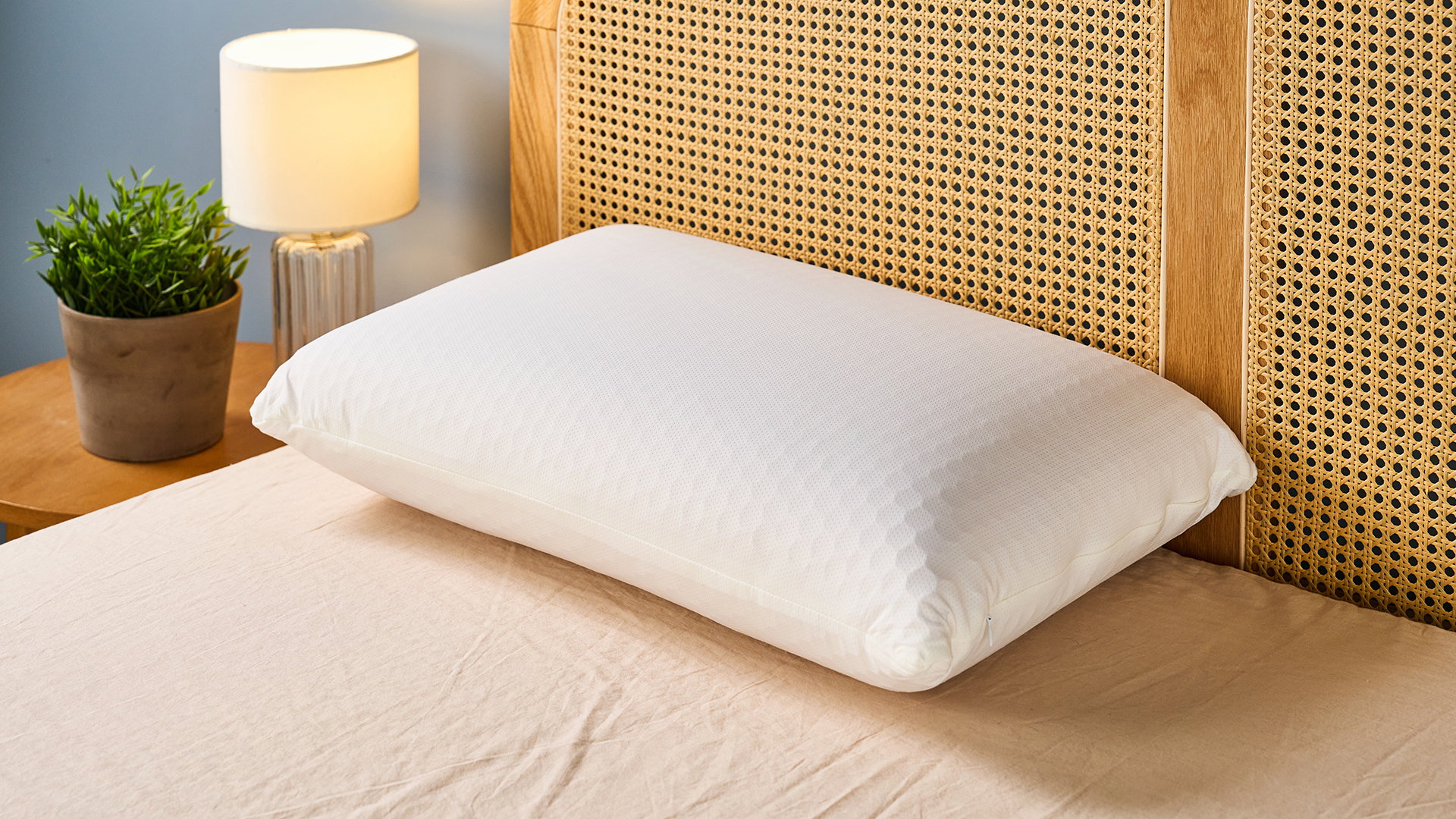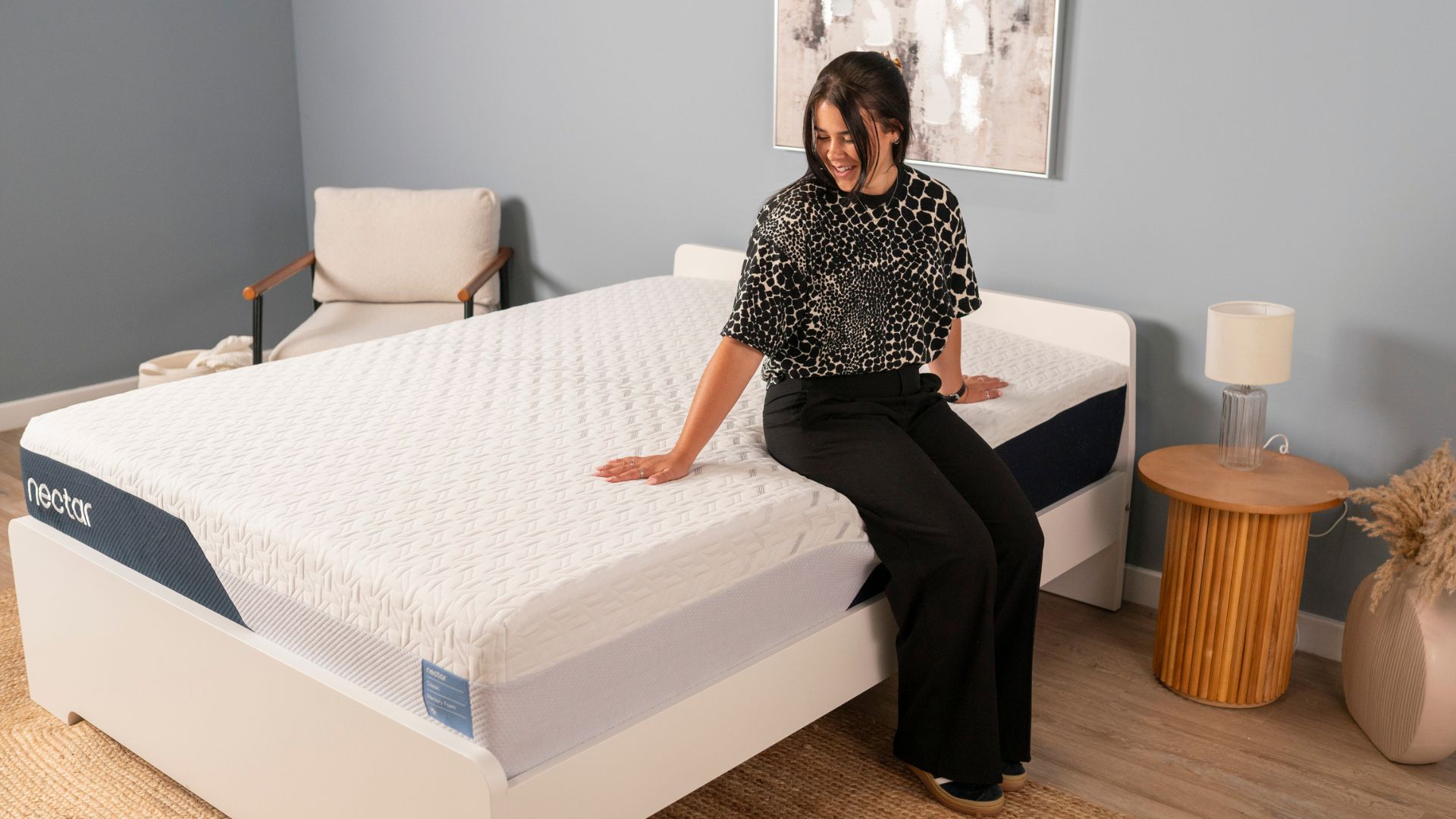70% of college students don't get enough rest — 5 tips to transform your dorm room into a sleep sanctuary
Sleep helps learning and memory but few students are getting enough

Here at Tom’s Guide our expert editors are committed to bringing you the best news, reviews and guides to help you stay informed and ahead of the curve!
You are now subscribed
Your newsletter sign-up was successful
Want to add more newsletters?

Daily (Mon-Sun)
Tom's Guide Daily
Sign up to get the latest updates on all of your favorite content! From cutting-edge tech news and the hottest streaming buzz to unbeatable deals on the best products and in-depth reviews, we’ve got you covered.

Weekly on Thursday
Tom's AI Guide
Be AI savvy with your weekly newsletter summing up all the biggest AI news you need to know. Plus, analysis from our AI editor and tips on how to use the latest AI tools!

Weekly on Friday
Tom's iGuide
Unlock the vast world of Apple news straight to your inbox. With coverage on everything from exciting product launches to essential software updates, this is your go-to source for the latest updates on all the best Apple content.

Weekly on Monday
Tom's Streaming Guide
Our weekly newsletter is expertly crafted to immerse you in the world of streaming. Stay updated on the latest releases and our top recommendations across your favorite streaming platforms.
Join the club
Get full access to premium articles, exclusive features and a growing list of member rewards.
When it comes to sleep, college students are failing to make the grade. Studies suggest up to 70% of students aren't snoozing enough, with erratic schedules and poor sleep hygiene among the culprits.
But while 'bad sleep' and 'college' often seem synonymous, sleep helps you learn, so missing out on shut-eye can result in a worse academic performance.
Although some colleges are introducing sleep initiatives — like Cornell's Sleep Program — good rest is rarely a priority for students.
But our Tom's Guide team is a big believer in the power of sleep and we don't think it needs to be hard work... we'll leave that to your exams.
Sleep is a student's most reliable friend
Let's be honest: good sleep is probably not your first concern as a college student.
But when you start getting good sleep, it's easier to focus on your real priorities. Sleeping well can improve your memory and boost your immune system, while deep sleep is essential to learning.
Sleep also impacts how you're feeling. Those with long term sleep deprivation often experience mood swings while research suggests consistent bad sleep can increase the risk of depression.
We're not suggesting skipping all the college fun so you can get an early night — the whole point is that by getting good sleep you can enjoy college more.
The tips below are easy to incorporate into your routine, affordable and help good sleep come naturally. That way, you can focus on your studies (and your social life.)
5 ways to avoid sleep deprivation at college
1. Pick up some affordable accessories to help you sleep
College immerses you in a world of new environments designed to challenge you on an intellectual and social level. And on top of that, you have to adjust to a new bedroom.

To ease the transition, consider picking up some budget-friendly sleep accessories, which you can find in our back to school sleep deals hub.
If you're sharing a room, ear plugs will soon be your new best friend. An eye mask is another inexpensive buy that can make your new room feel cozier (and a must if your roommate enjoys late nights or early mornings.)
2. Keep your bed for sleep (not studying)
Space comes at a premium in most college dorms which is why a mattress can be everything from a desk to a couch to a dinner table. But making your bed a multi-use unit has a major downside: you stop seeing it as a bed.
This can be a particular problem when your mattress becomes a study space. Your brain will learn to associate going to bed with doing work and, particularly around exam season, with stress.

By establishing a desk space soon after moving in you teach your brain that the bed is a place for rest, not study. When you climb beneath the covers, it will recognize this as a sign to switch off.
3. Invest in bedding that makes the room your own
Your bed should feel welcoming after a long day of lectures, seminars and hard work. The easiest way to achieve this is with comfortable bedding.
Start with the pillow. The best pillow for your sleep holds the head in alignment, cutting down on neck pain and helping you wake up refreshed.
Opt for breathable sheets and bedding that will stay a comfortable temperature whatever the weather. Dorm rooms don't always have ample space to store spare blankets so make sure what you buy has versatility.

Don't forget the mattress protector — the best mattress protectors are affordable and help keep your entire bed fresh.
And our top tip: choose bedding that's easy to wash. For many freshman this is the first time in charge of laundry. To make sure it's getting done (and done regularly) washing instructions should as simple as possible.
4. Make time for a wind-down routine
College is busy and sometimes removing your shoes before crashing out will seem like enough pre-bed prep. But it's worth building a relaxing sleep routine that can support you throughout the semester.
A nighttime routine is another way to tell your brain it's time to sleep, letting your body clock know that relaxation is now the priority.

What does a good wind-down routine look like? It doesn't need to be long (30 minutes will do) and it shouldn't be too difficult (or you won't stick with it.)
Think of hobbies and activities you find relaxing and start working them into your evening. Play around until you find something you enjoy. And don't be afraid to make changes — we're practicing good sleep, not perfecting it.
5. Consider replacing your dorm mattress
Dorm mattresses are designed to feel comfortable to as many people as possible but in trying to please everyone they rarely please anyone.
We know from testing the best mattresses you can buy online how much the right bed can improve your sleep. It essentially provides a solid and reliable foundation for good rest every night.
And you don't have to break the budget, as the best mattresses for college students come in a wide variety of types, feels and price ranges.

We have plenty of advice on how to choose a mattress but to keep it simple, follow these steps:
- Consider your sleep position: Side sleepers often benefit from a softer mattress while back and front sleepers need something firmer. Combi sleepers tend to sleep best on a medium-firm mattress.
- Consider additional sleep needs: We test all mattresses for aspects such as edge support, motion transfer and temperature control. Which do you prioritize and which can you sacrifice?
- Set your budget: The best cheap mattresses can provide comfort throughout college without breaking the bank (but may need replacing before your PhD.) Regular mattress sales will help you score a bargain.
- Check the sleep trial: Most mattresses sold online come with a sleep trial which acts as a safety. You can try the bed at home taking off the pressure of getting it right the first time.
If you can't afford a new mattress, consider a mattress topper instead.
Typically measuring between two and four inches thick, the best mattress toppers add an extra layer of comfort to your bed and can be used to make a hard mattress softer (and vice versa.)

Ruth is an experienced Senior Staff writer at Tom’s Guide, covering all things sleep and mattresses. She writes to help people sleep better, from how-tos to the latest deals to mattress reviews, and has interviewed an array of experts who share her passion. She is also our specialist on memory foam — she’s flown around the world to see memory foam being made — and leads our hotel mattress content. She has a deep interest in the link between sleep and health, and has tried enough mattresses, from Helix to Nectar to Simba, to know the right bed really can make a difference to your wellbeing. Before joining the team at Tom’s Guide, Ruth worked as a sleep and mattress writer for our sister website, TechRadar.
You must confirm your public display name before commenting
Please logout and then login again, you will then be prompted to enter your display name.
 Club Benefits
Club Benefits





